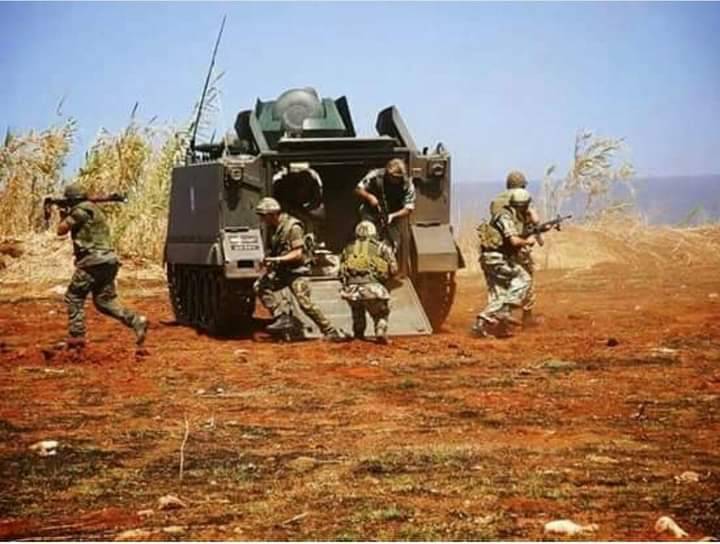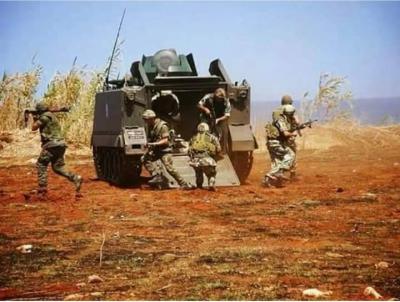There is unanimous agreement among people in the north, from the Lebanese-Syrian border extending to Tripoli and Jabal Mohsen, that there are those who always seek to exploit the tragic past sectarian strife between Sunnis and Alawites, and between Babal Mohsen and Tabbaneh. There are also those who bet on the return of terrorist and extremist organizations to their pre-2013 activities, in order to harm Hezbollah and the Syrian regime, taking advantage of any sectarian or divisive schemes.
The crime in Taalbaya, which resulted in the deaths of Mahmoud Khidr from Jabal Mohsen and the Hussini brothers from Bebnin Akkar, while one of the attackers was killed during a clash inside a mobile phone store, shares preliminary threads with the crime in Kfifan, as it seems to be theft driven by terrorism or funding for terrorist activities. However, awareness in Tripoli and Jabal Mohsen, according to influential figures from both areas, will thwart any such schemes.
Prominent Sunni circles in Tripoli affirm that what happened is dangerous and shakes social security, stirring concerns about the theft of other interests and institutions. The responsibility for monitoring terrorism and sleeper cells lies with the army and security agencies, which have not faltered in their security and intelligence follow-ups. They were able, within 48 hours, to uncover threads confirming destructive intentions, apprehending suspects while the army continues its security efforts and raids in Tripoli and its suburbs, extending to the north and border regions.
Sources indicate that political, religious, and parliamentary forces in Tripoli, led by Prime Minister Najib Mikati and Dar al-Fatwa represented by Sheikh Abdul Latif Deryan, along with the city's MPs, clearly recognize that there are those who wish to capitalize on the financial and economic collapse and the prevailing poverty, especially given that "Tripoli's body is ripe" for incitement. Furthermore, there are reports of terrorist and "ISIS-like" elements spreading in the city. The political and parliamentary setback of Sunni moderation is being exploited by those holding dark and extremist ideologies.
The sources emphasize that the Sunni community quickly rejected this crime and expressed solidarity with the families of the deceased, Khidr and the Hussinis, horrified at what transpired. Particularly, there are hundreds of commercial interests owned by Alawites in "the city," i.e., Tripoli, and daily interactions between the regions. Once the painful events have passed, nothing should disrupt this relationship.
While the Sunni forces in Tripoli trust the army and security forces to investigate the circumstances surrounding the Taalbaya crime and assert that it will not affect the relationship between the two areas, prominent Alawite figures in Jabal Mohsen likewise emphasize that the residents of Jabal Mohsen, Akkar, and Alawites in Lebanon always rely on the state and the army. Despite the loss of Mahmoud Khidr, known for his good political, commercial, and security relations with the Tripoli area and security agencies, there is a feeling that the crime is deeper than robbery and may be closer to an "assassination attempt" on Khidr, who, along with his brothers, had received threats and faced harassment during the traumatic events, with their establishments set ablaze and damaged by extremists. Nevertheless, they refused to leave Tripoli, similar to all Alawites who consider Tripoli and its people as part of their fabric and surroundings.
The sources confirm faith in the army and in the serious investigations being conducted, highlighting the need for transparency about the investigations and video recordings that the army possesses within the first hours of the incident, especially since there are multiple detainees in the hands of the intelligence services.
It points out that awareness is needed from both the Alawite and Tripolitan communities, which is present on both sides. There is a clear consensus in Tripoli to denounce what occurred, and it is also essential to dissipate all fears by swiftly revealing all circumstances of the crime to reassure Alawites and business owners in Tripoli that it was an "isolated incident." Even if it was a normal robbery and not motivated by terrorism, will it be the last one? Who will reassure the hundreds of businesses and owners about their safety from theft and targeting, despite reliance on the army's efforts in intensifying patrols and actions between the two regions?




